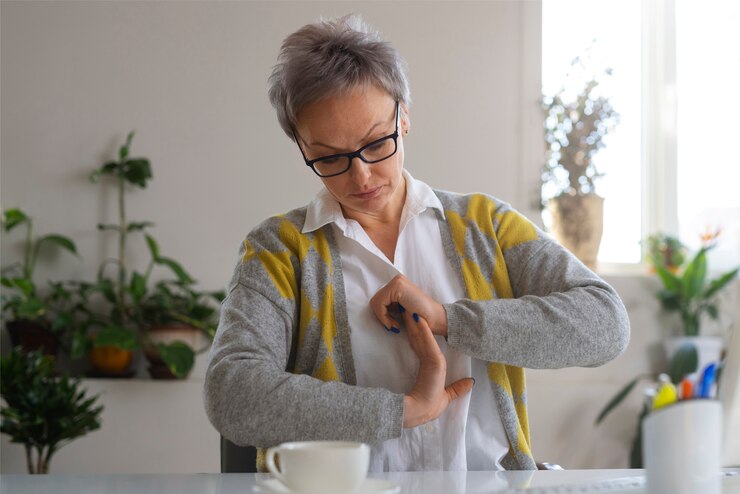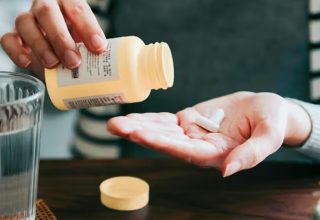Self-Care Tips for Parkinson’s
If you are suffering from the progressive neurological condition known as Parkinson’s disease (PD), then these self-care tips are a must for you. You can also share these self-care tips with your family member or friend who is suffering from this neurological condition. This disease primarily affects your muscles movement.
Let’s learn a bit about Parkinson’s before we move on to the self-care tips to manage the disease.
Parkinson’s
Parkinson’s affects your brain’s neurons that produce dopamine and degenerates it which causes dopamine deficiency. Dopamine helps your body coordinate and regulate movement, so when you have dopamine deficiency your movements will get affected. Parkinson’s disease progression is slow but it still affects your daily life and activities.
This disease varies from person to person and deteriorates your quality of life. You can also try improving your functionality and way of life since there is no cure for Parkinson’s disease. Here is where self-care comes into play that helps you manage PD.
Parkinson’s care at home can improve the quality of life for individuals with PD by addressing both motor and non-motor symptoms. Here in this self-care routine we have incorporated physical, mental, practical, and social self-care practices. All these aspects of life need to be managed better to minimize the effect of these conditions.
When you manage the symptoms of PD you will see that your overall well-being gets better. This makes your life more fulfilling and you can manage your independence.
Different Self-Care Tips To Manage Your Parkinson’s Disease
So, how can you minimize your Parkinson’s symptoms to improve your daily lifestyle? It’s through improving your overall self-care routine.
#1 Prioritize Movement and Exercise

PD affects your movements sp your first step should be to incorporate physical self-care in your daily routine. You must include physical activities regularly in your routine like building muscles, increasing flexibility, improving joint movement and other exercises.
This helps make your movement easier and you can independently do your daily tasks. You can also add certain exercises that can improve your body’s balance and coordination which are associated with Parkinson’s disease. This will help reduce your fall risk and promote confidence in your mobility ability.
Symptoms like muscle stiffness get better with time when you exercise regularly.
#2 Maintain a Healthy Diet

It’s essential that you maintain your diet with a well-rounded nutritious diet that can help manage your disease. You need to maintain a diet which has all several foods from all food groups. This is because you need to improve your body’s overall functionality that requires all nutritions to function properly.
PD symptoms get worse when you are dehydrated so stay hydrated throughout the day to avoid tremors. When you are hydrated and eat a well-balanced diet you minimize the symptoms of PD.
When you eat processed foods you can aggravate your PD symptoms. Instead eat food that helps protect your brain tissues and slows the disease progression. So, avoid eating processed food which contains added salt, sugar and fats, instead eat food rich in vitamins and antioxidants.
Choose healthier unprocessed and whole foods in your diet. It would be best if you consult a licensed dietitian to develop a personalized eating plan that suits your needs.
#3 Manage Stress and Promote Relaxation
If you are fatigue or stressed then your PD symptoms can get aggravated. So include mental and emotional self-care routine in your daily life. This routine includes activities like relaxation techniques, managing your stress and helping you sleep better.
When you sleep better and manage your anxiety and stress, then you can minimize the symptoms of PD. You can try yoga and meditation to relax and minimize tension and anxiety.
#4 Prioritize Quality Sleep
You must get enough quality sleep to manage your Parkinson’s disease symptoms and maintain overall health. Sleep allows your brain to heal and regenerate, which affects your mood, energy levels, and cognitive function. Here are some tips to improve your PD symptoms due to bad sleep habits.
Go to bed and wake up at the same time every day, even on weekends. This helps maintain your body’s natural circadian rhythm. Read a book, take a warm bath, or listen to relaxing music before bedtime.
#5 Stay Connected and Engaged
For people with Parkinson’s disease, maintaining social connections and mental stimulation is crucial for well-being and cognitive function. Feelings of loneliness and social isolation can exacerbate anxiety and depression. To stay engaged and connected, try these strategies:
Participate in enjoyable social activities, such as volunteering, joining a group, or spending time with loved ones. Maintaining a hobby provides mental stimulation and a sense of purpose. Connecting with others who understand the challenges of Parkinson’s disease can offer coping mechanisms, emotional support, and a sense of community.
Different Techniques Of Self-Care Routines To Over Come Parkinson’s
If you have Parkinson’s disease or your loved ones, then you must take effective self-care for yourself. Within this self-care routine you have several techniques that deal with the complex problems of this disease.
Physical Self-Care
You have physical self-care where regular exercise, proper routine for sleep, a balanced diet, and correctly managing medications are included.
Emotional and Mental Self-Care
Your self-care routine also involves ways to manage your emotional and mental health. Stress management, cognitive activities, and support group or counseling are some of the routines under emotional and mental self-care routine.
Practical Self-Care
Again, there is practical self-care where you modify your daily tasks, managing time, and preserving independence to deal better with the disease. All these practical self-care routines utilize assistive technology to better your life for better functionality.
Social Self-Care
Lastly, there is social self-care that emphasizes on maintaining social connection and guides you to participate in support groups. This helps you improve your mental health and foster a sense of community because when you engage with others you get more confidence to overcome the disease drawbacks.
Others who are suffering from the same disease also share their struggles and you understand that you are not alone. So take proactive action in your self-care routines which will help you or your loved one with Parkinson’s disease.
Conclusion
When you start to take care of all aspects of your life, then dealing with Parkinson’s disease becomes easier. You start to feel better internally and outward which helps you do better in life.
So take active part in these self-care routines to better your functionality. This will help you manage the challenges of the illness better and maintain your independence. Ultimately, you can achieve higher levels of physical and mental health through these routines.
Read Also:


